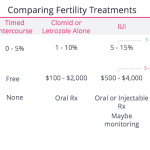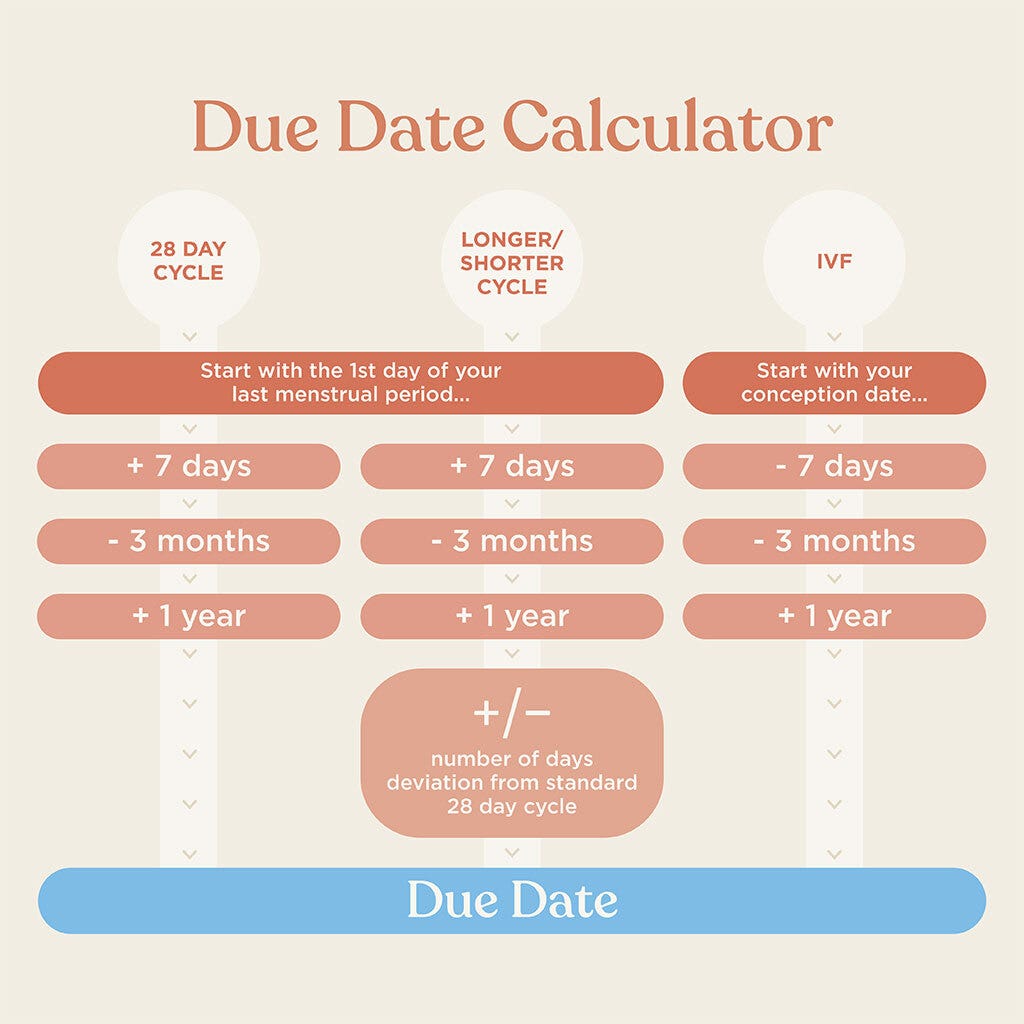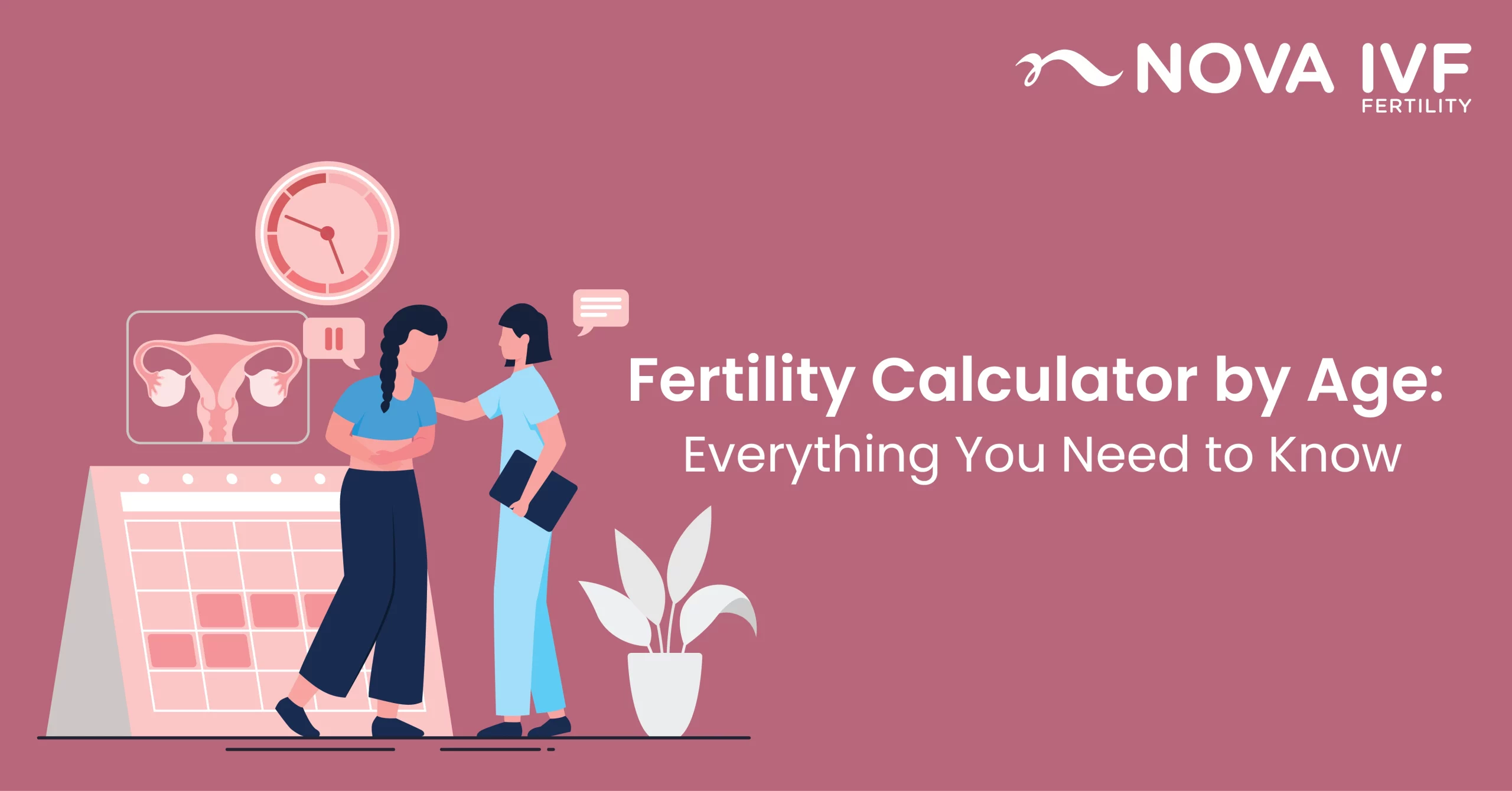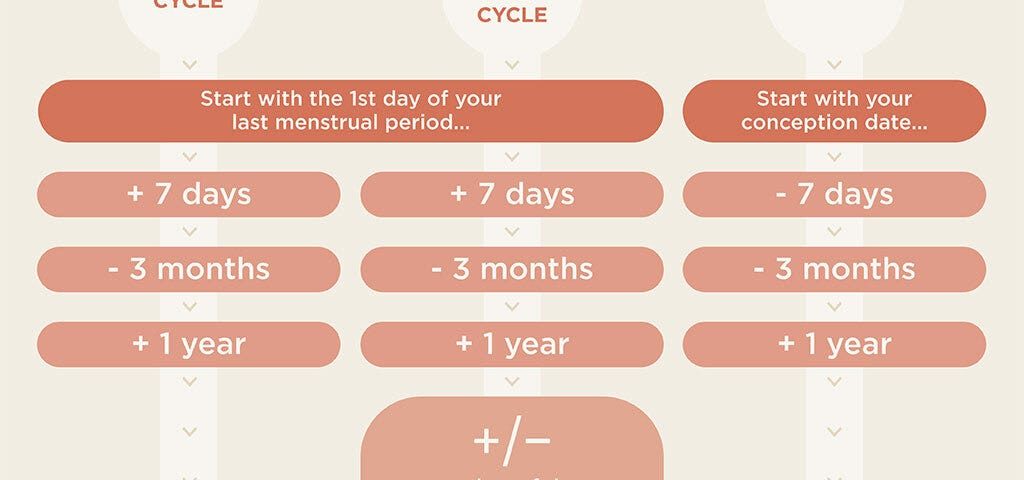
The IVF Timeline: Your Step-by-Step Guide to the Journey
April 4, 2025
IVF Cost in the United States: What You Need to Know in 2025
April 4, 2025IVF Due Date Calculator: Everything You Need to Know About Predicting Your Baby’s Arrival
Hey there! If you’re reading this, chances are you’re on an exciting (and maybe a little nerve-wracking) journey through IVF—In Vitro Fertilization. First off, congratulations on taking this big step! One of the most thrilling moments after a successful embryo transfer is figuring out when your little one might arrive. That’s where an IVF due date calculator comes in—a super handy tool that takes the guesswork out of the equation. But how does it work? Why is it different from a regular pregnancy calculator? And what cool details about your pregnancy can it reveal that you might not have thought about?
In this article, we’re diving deep into the world of IVF due date calculators. We’ll break down how they work, share some insider tips you won’t find everywhere, and even sprinkle in the latest research to give you the most up-to-date info. Whether you’re a first-timer or a seasoned IVF pro, we’ve got you covered with practical advice, fun facts, and a few surprises along the way. Let’s get started!
What Makes an IVF Due Date Calculator So Special?
When you conceive naturally, doctors usually guess your due date based on the first day of your last period. But with IVF, things are a bit more precise—and honestly, a little more exciting! An IVF due date calculator uses the exact date of your embryo transfer to pinpoint when your baby might arrive. This isn’t just a random guess; it’s based on the age of your embryo and the science of how pregnancies progress.
Why It’s Different from a Regular Calculator
- No Last Period Needed: With IVF, you don’t rely on your menstrual cycle (which can be unpredictable anyway). Instead, it’s all about the transfer day—whether it’s a 3-day or 5-day embryo.
- Spot-On Timing: Since doctors know exactly when the embryo was placed in your uterus, the due date is more accurate than the “maybe you ovulated around this time” method.
- Customized for You: Were you using fresh embryos or frozen ones? Did you have a Day 3 or Day 5 transfer? The calculator adjusts for all of that!
How It Works in Simple Terms
Imagine your embryo as a tiny seed planted on a specific day. For a Day 5 embryo transfer (the most common type), you add 261 days to that “planting” date to get your due date. For a Day 3 transfer, it’s 263 days. It’s like a countdown to your baby’s big debut, and the calculator does the math for you!
Fun Fact: Did you know the “266 days” part comes from the average time from conception to birth? IVF just tweaks it a bit based on when your embryo was ready to grow.

How to Use an IVF Due Date Calculator: A Step-by-Step Guide
Ready to try it out? Using an IVF due date calculator is as easy as pie. Here’s how you can do it yourself—and what to watch out for.
Step 1: Know Your Transfer Date
This is the day your doctor transferred the embryo into your uterus. Check your clinic notes or calendar—it’s a big day worth remembering!
Step 2: Pick Your Embryo Type
- Day 3 Embryo: These are transferred 3 days after fertilization.
- Day 5 Embryo: These are blastocysts, transferred 5 days after fertilization (most common with frozen transfers).
Step 3: Plug It In
Find a reliable online IVF due date calculator (we’ll recommend some later!) and enter:
- The transfer date
- Whether it was a Day 3 or Day 5 transfer
Step 4: Get Your Due Date!
The calculator will spit out an estimated due date (often called your EDD—Estimated Due Date). It might even show you fun milestones, like when your baby’s heart starts beating or when you hit the second trimester.
Quick Example: Let’s say your Day 5 transfer was on March 1, 2025. Add 261 days, and you land on November 17, 2025. That’s your baby’s potential birthday!
Things to Keep in Mind
✔️ Double-Check the Date: Mix up the transfer day, and your due date will be off.
❌ Don’t Stress the Exact Day: Only about 5% of babies arrive right on their due date—IVF or not!
✔️ Ask Your Doctor: Calculators are great, but your doc can confirm with an ultrasound.
The Science Behind the Magic: Why IVF Due Dates Are More Accurate
You might be wondering, “Why do people say IVF due dates are so spot-on?” It’s all about timing. In a natural pregnancy, ovulation can happen anytime in a window of days, and sperm can hang out for up to 5 days waiting for an egg. That’s a lot of guesswork! But with IVF, the embryo’s age and transfer date are known down to the hour.
What Research Says
A 2022 study from the Journal of Assisted Reproduction and Genetics found that IVF pregnancies dated from the transfer day were accurate within a 5-7 day window when confirmed by early ultrasounds. Compare that to natural pregnancies, where the window can be 10-14 days—pretty impressive, right?
Expert Insight
Dr. Jessica Ryniec, an OB-GYN and fertility specialist, explains, “Since we know the embryo’s age and transfer date, IVF due dates give us a tighter timeline to predict a 40-week pregnancy. It’s like having a head start on the calendar!”
Fresh vs. Frozen: Does It Change Things?
Here’s a little secret a lot of articles skip: whether your embryo was fresh or frozen doesn’t shift the due date calculation. The key is the embryo’s age at transfer, not whether it took a chilly nap in the freezer first. So, no need to worry about that detail!
What Fans Want to Know: Quirky Questions About IVF Due Dates
Let’s get into some fun stuff—things you won’t find in every article but that IVF fans are dying to know!
Can I Predict My Baby’s Zodiac Sign?
Absolutely! Once you’ve got your due date, check the zodiac calendar:
- November 17, 2025? That’s a Scorpio (October 23 – November 21)—mysterious and passionate!
- December 1, 2025? Sagittarius (November 22 – December 21)—adventurous and free-spirited.
It’s a playful way to imagine your little one’s personality before they even arrive.
Will Twins Change My Due Date?
If you’re expecting twins (go you!), the calculator still gives you a starting point, but twins often arrive earlier—around 36-37 weeks instead of 40. So, subtract a few weeks from that single-baby due date for a rough idea.
Does My Diet Affect the Due Date?
Nope! While eating healthy is key for a smooth pregnancy, your due date is locked in by the transfer. That said, a balanced diet can help you feel your best while you wait—think lots of fruits, veggies, and maybe a sneaky chocolate treat.
Random Tidbit: Some IVF moms swear by keeping a pregnancy journal to track cravings. One mom said she craved pickles every Tuesday—maybe her baby was sending a signal!
Busting Myths: What You Might’ve Heard About IVF Due Dates
There’s a ton of chatter out there about IVF pregnancies, and not all of it’s true. Let’s clear up some myths with facts.
Myth #1: IVF Babies Always Come Early
Truth: Not necessarily! While IVF pregnancies can have a slightly higher chance of preterm birth (about 10-12% per the CDC), most still go full-term (37-40 weeks). It depends on your health, not just the IVF process.
Myth #2: The Calculator Is 100% Right
Truth: It’s an estimate, not a promise. Babies have their own schedules—sometimes they’re fashionably late or eager to meet you early. Ultrasounds around 8-12 weeks fine-tune the date.
Myth #3: Frozen Embryos Mean a Later Due Date
Truth: Nope! The due date is based on the transfer day and embryo age, not whether it was frozen. A Day 5 frozen embryo transferred on March 1 has the same due date as a fresh one—November 17.
Beyond the Due Date: What Else Can the Calculator Tell You?
Here’s where it gets really cool. The best IVF due date calculators don’t just stop at “your baby’s due on this day.” They can unlock a treasure trove of info about your pregnancy journey.
Milestones You’ll Love
- 6 Weeks: Your baby’s heart starts beating—how amazing is that?
- 12 Weeks: You’re out of the first trimester—time to celebrate!
- 20 Weeks: Halfway there, and you might find out if it’s a boy or girl.
Some calculators even tell you when your baby starts kicking or sucking their thumb—little moments that make it feel so real.
Trimester Breakdown
- First Trimester (Weeks 1-12): Tiny cells turn into a mini human.
- Second Trimester (Weeks 13-26): You might feel those first flutters!
- Third Trimester (Weeks 27-40): Baby’s packing on pounds and getting ready to meet you.
Bonus: How Pregnant Are You Right Now?
Enter today’s date (say, March 23, 2025) and your transfer date, and some calculators will tell you exactly how many weeks along you are. It’s like a pregnancy progress report!
Practical Tips: Making the Most of Your IVF Due Date
Knowing your due date is awesome, but what do you do with it? Here are some real-life ideas to help you plan and enjoy the ride.
Tip #1: Start a Countdown
Grab a cute calendar and mark your due date. Cross off each week—it’s a fun way to feel the excitement build. Bonus points if you add stickers for milestones!
Tip #2: Schedule Smart
Use your due date to book key appointments:
- 8-12 Weeks: First ultrasound to confirm the date.
- 20 Weeks: Anatomy scan to check baby’s growth.
- 36 Weeks: Final prep with your doctor.
Tip #3: Prep Your Nest
Knowing when baby’s coming helps you time things like:
✔️ Setting up the crib (maybe around 30 weeks).
✔️ Packing your hospital bag (aim for 35 weeks).
❌ Don’t wait ’til the last minute—babies can surprise you!
Pro Tip: One IVF mom I heard about painted her nursery based on her due date season—soft yellows for a fall baby. What’s your vibe?
The Emotional Side: What Your Due Date Really Means
Let’s get real for a sec. After all the shots, appointments, and waiting, seeing that due date can hit you hard—in a good way. It’s not just a number; it’s a promise of the family you’ve been dreaming about.
Why It Feels So Big
- A Milestone After the Struggle: For many, IVF is a rollercoaster. That date is proof you’re almost there.
- A Connection to Your Baby: It’s the first thing you “know” about them—like a sneak peek into the future.
Coping with the Wait
The 9-month countdown can feel endless. Try these:
- Journal It: Write letters to your baby each month.
- Connect with Others: Join an IVF mom group—someone’s always got a funny story to share.
- Celebrate Small Wins: First ultrasound? Treat yourself to ice cream!
Expert Tip: Dr. Allison Rodgers, a fertility expert, says, “That due date can be a beacon of hope. Hold onto it when the days feel long.”
Latest Research: What’s New in IVF Due Date Science?
Science doesn’t stand still, and neither should your info! Here’s what’s fresh in the world of IVF due dates as of 2025.
Ultrasounds Are Getting Smarter
New tech in 2024 showed that AI-powered ultrasounds can predict due dates even more precisely—sometimes within 3 days—by analyzing embryo growth patterns. Ask your clinic if they’re using this yet!
Multiples on the Rise
With IVF, twins or more aren’t rare (about 1 in 3 IVF pregnancies, per the CDC). A 2023 study found that twin due dates are shifting earlier—around 35 weeks—thanks to better monitoring. Calculators are starting to adjust for this trend.
Stress and Timing
A small 2024 study suggested that lower stress levels post-transfer might lead to babies sticking closer to their due dates. No pressure, but maybe add some yoga to your routine?
Top IVF Due Date Calculators to Try in 2025
Not all calculators are created equal. Here’s a roundup of the best ones out there, based on what real users love—and a few unique perks.
1. Your IVF Journey Calculator
- Why It’s Great: Covers all treatments (IVF, FET, donor eggs) and gives due dates for twins or triplets.
- Cool Extra: Shows how many days pregnant you are today.
- Try It: Simple dropdowns—just pick your transfer date and go!
2. What to Expect IVF Calculator
- Why It’s Great: Super user-friendly and backed by a trusted pregnancy site.
- Cool Extra: Links to milestone articles for each week.
- Downside: Only does Day 3 or 5 transfers—no fancy extras.
3. The Lucky Egg Calculator
- Why It’s Great: Created by a fertility doc, so it’s legit.
- Cool Extra: Full pregnancy calendar with milestones like “baby’s first kicks.”
- Try It: Perfect if you love details!
Quick Tip: Many sites miss this, but double-check if the calculator asks for fresh vs. frozen—it shouldn’t matter, but some older ones get confused.
Unique Angles You Won’t Find Everywhere
Let’s dig into some topics that don’t always make the cut in other articles—stuff that’ll make you the IVF expert among your friends.
Can Weather Affect Your Due Date?
Okay, not really—but hear me out! A quirky 2023 study noticed more IVF babies born in spring might be linked to transfers happening in summer. It’s not about the due date shifting; it’s about when people start IVF. Are you a seasonal planner?
Your Baby’s “Conception” Story
With IVF, you’ve got a unique tale to tell. Instead of “we got lucky one night,” it’s “your embryo was a champ on Day 5.” How cool is that for a baby book entry?
The Name Game
Some parents pick names tied to their due date month—like Autumn for October or Noel for December. What’s your due date inspiring?
FAQs: Your Burning Questions Answered
Got questions? We’ve got answers—short, sweet, and straight to the point.
Q: What if I Don’t Know My Transfer Date?
A: Call your clinic—they’ll have it on file. It’s too important to guess!
Q: Are IVF Due Dates More Reliable Than Natural Ones?
A: Yep, because the start date is exact. But babies still pick their own arrival time.
Q: Can I Use a Regular Calculator for IVF?
A: Not really—it’ll assume a last period date, which doesn’t apply. Stick to an IVF-specific one.
Q: What If My Ultrasound Date Differs?
A: Early ultrasounds (8-12 weeks) might tweak the due date slightly. Trust your doctor’s call.

Wrapping It Up: Your IVF Due Date Adventure Awaits
So, there you have it—everything you need to know about IVF due date calculators and then some! From the nitty-gritty science to fun little extras like zodiac signs and pregnancy milestones, this tool is your ticket to planning, dreaming, and counting down the days. It’s more than just a date; it’s the start of your next big chapter.
Now it’s your turn—what’s your due date? How are you feeling about it? Drop a comment below and share your story. Or, if you’ve got a quirky tip or question we missed, let’s chat! We’re all in this together, and your journey’s just getting started. Happy calculating!
